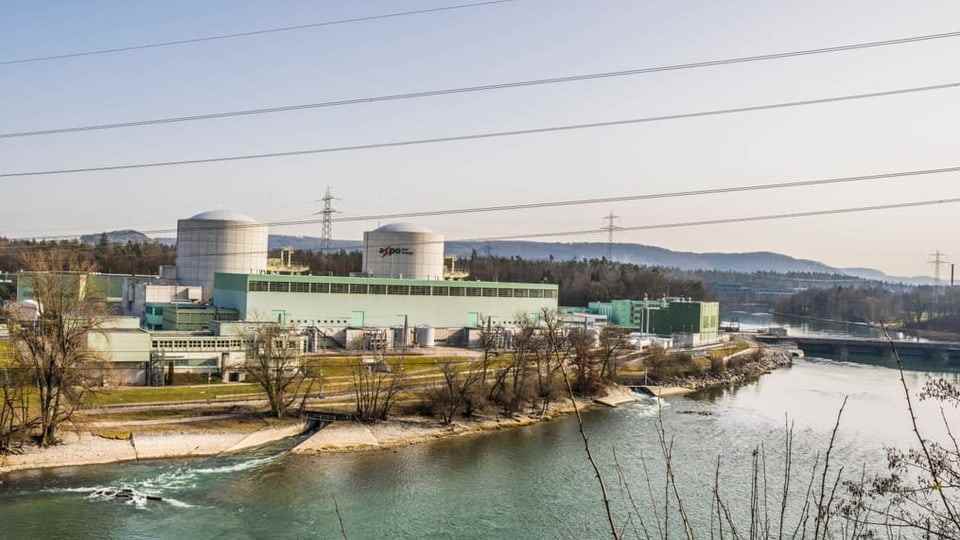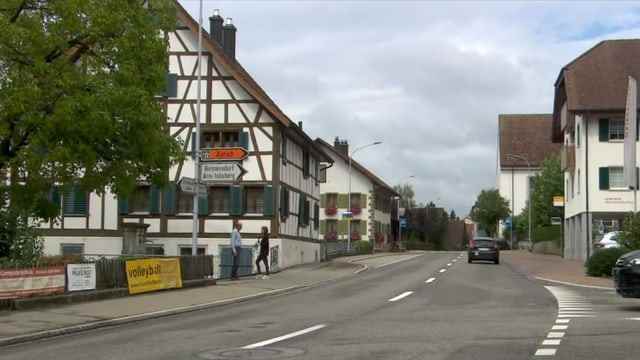contents
The Mittelland canton produces far more electricity than it consumes itself. But he can’t keep the current.
In Aargau of all places! The municipality of Oberlunkhofen made national headlines. Nowhere else will electricity prices for the coming year rise as sharply as here. That makes you sit up and take notice. After all, three out of four Swiss nuclear reactors are located in Aargau. There are also 26 large river power plants. Aargau produces around four times more electricity than it uses itself. He should actually be able to benefit from that.
The power plants in Aargau are currently producing electricity much more cheaply than the current market prices. They run around the clock, and some have been amortized for years. But the people of Aargau will also have to dig deeper into their pockets for their electricity bills in winter.
For the most part, the Aargau energy suppliers cannot buy the electricity directly from the production plants. Or to put it bluntly: the electricity does not flow directly from the power plant into the socket.
Explanation 1: Most electric utilities don’t make electricity. “Only a few municipal utilities in Aarau, Baden or Brugg produce on a large scale themselves,” explains Ruedi Zurbrügg, Managing Director of the Aargau Electricity Utilities Association (VAS). These could benefit from their own power plants and keep their electricity prices relatively low.
However, 9 out of 10 local electricity suppliers do not produce any electricity themselves or at most have a few solar systems or small hydroelectric power plants. They are therefore dependent on external suppliers. These suppliers are, for example, corporations such as Axpo or BKW. These groups also own the most important electricity production plants in the canton of Aargau – the three nuclear reactors.

Legend:
The two reactors Beznau 1 and 2 are located in the Aargau municipality of Döttingen. They deliver about twice as much electricity as the city of Zurich consumes.
IMAGO / Andreas Haas
Explanation 2: The power plants do not belong (solely) to Aargau. The three nuclear power plants in Aargau have a wide range of shareholders and often belong to several power companies and cantons together. And these shareholders determine what happens to the electricity, says Ruedi Zurbrügg: “Are we going to list it on the stock exchange or do we sell the electricity directly to customers? The shareholders decide that.”
The Leibstadt nuclear power plant, for example, belongs to a consortium of various energy companies. The two reactors in Beznau are 100 percent owned by Axpo Energie AG – but this in turn belongs to a large consortium of cantonal electricity companies and cantons.
The Aargau politicians therefore have no direct “access” to the electricity production plants in their own canton. And the shareholders – especially those from other cantons, for example – have no interest in the electricity from Leibstadt or Beznau remaining in Aargau.
Explanation 3: The electricity market is now international. That is why most power plants sell their electricity on the European electricity exchange in Leipzig. There, the primacy of “supply and demand” applies, so the market price is created in East Germany. Because demand is high and supply may soon be too scarce, prices are currently rising massively.
The local electricity suppliers have to buy the electricity from their producers at these market prices. Anyone who currently has no ongoing long-term contracts must now order new contingents if the prices are high. The people of Aargau also suffer from this, although they actually “swim with the current”.
